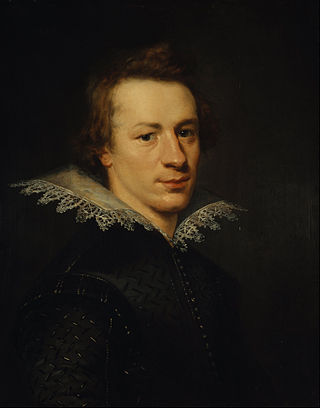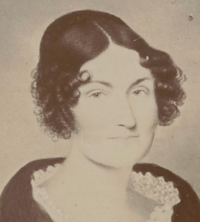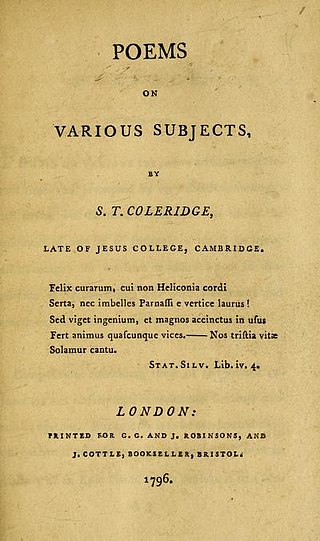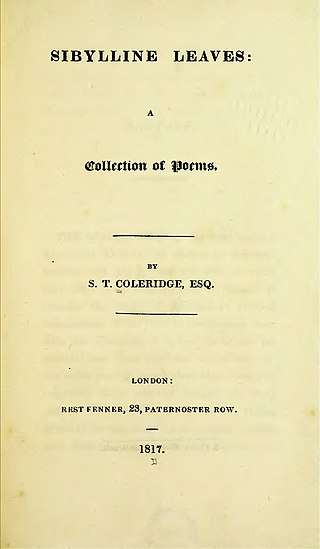Related Research Articles

Luigi Alamanni was an Italian poet and statesman. He was regarded as a prolific and versatile poet. He was credited with introducing the epigram into Italian poetry.

Michael Drayton was an English poet who came to prominence in the Elizabethan era, continuing to write through the reign of James I and into the reign of Charles I. Many of his works consisted of historical poetry, and he was also the first English-language author to write odes in the style of Horace. He died on 23 December 1631 in London.

José-Maria de Heredia was a Cuban-born French Parnassian poet. He was the fifteenth member elected for seat 4 of the Académie française in 1894.

William Drummond, called "of Hawthornden", was a Scottish poet.

William Lisle Bowles was an English priest, poet and critic.
David Gray was a Scottish poet, from Merkland, Kirkintilloch. He died in his hometown aged 23. His friend and fellow poet Robert Buchanan wrote his biography in 1900.

Ebenezer Elliott was an English poet, known as the Corn Law rhymer for his leading the fight to repeal the Corn Laws, which were causing hardship and starvation among the poor. Though a factory owner himself, his single-minded devotion to the welfare of the labouring classes won him a sympathetic reputation long after his poetry ceased to be read.

John Payne was an English poet and translator. Initially he pursued a legal career and had associated with Dante Gabriel Rossetti. Later he became involved with limited edition publishing and the Villon Society.

Sonnet 55 is one of the 154 sonnets published in 1609 by the English playwright and poet William Shakespeare. It is included in what is referred to as the Fair Youth sequence.

Milton's 1645 Poems is a collection, divided into separate English and Latin sections, of John Milton's youthful poetry in a variety of genres, including such notable works as An Ode on the Morning of Christ's Nativity, Comus and Lycidas. Appearing in late 1645 or 1646, the octavo volume, whose full title is Poems of Mr. John Milton both English and Latin, compos'd at several times, was issued by the Royalist publisher Humphrey Moseley. In 1673, a year before his death, Milton issued a revised and expanded edition of the Poems.

Hannah Flagg Gould was a 19th-century American poet. Her father had been a soldier in the American Revolutionary War, and after her mother's death, she became his constant companion, which accounts for the patriotism of her earlier verses. Gould's poems were short, but they were frequently nearly perfect in their kind. Nearly all of them appeared originally in annuals, magazines, and other miscellanies, and their popularity was shown by the subsequent sale of several collective editions. Her work exercised a helpful influence in its day, but lacked staying qualities. The high-water mark of her verse was reached in the poem entitled "A Name in the Sand".
Walter Davison was an English poet.
Patrick Hannay was a Scottish poet and courtier.

Estelle Anna Lewis was a 19th-century American poet and dramatist. After marriage, she started using pen names, including "Estelle", "Stella", and "Stells".
Thomas Park (1759–1834) was an English antiquary and bibliographer, also known as a literary editor.

Fanny Bury Palliser (1805–1878) was an English writer on art, and lace.

Susan Marr Spalding was an American poet of the long nineteenth century. Spalding was best known and least known by her poem, "Fate". The poem itself was widely copied and claimed, and its title was sometimes changed to "Kismet", but not until 1893 was Spalding's right of authorship absolutely settled.
Lucy Hooper was a 19th-century American writer known for her poetry and newspaper accounts. Her interests included botany and poetry. Though she died of consumption at the age of 25, she is remembered for writing The Lady's Book, "one of the most accomplished of the American flower books".

Poems on Various Subjects (1796) was the first collection by Samuel Taylor Coleridge, including also a few sonnets by Charles Lamb. A second edition in 1797 added many more poems by Lamb and by Charles Lloyd, and a third edition appeared in 1803 with Coleridge's works only. All three editions included poems in Coleridge's early Miltonic style, such as his Religious Musings and Monody on the Death of Chatterton, alongside lyrics and some of his first conversation poems, such as The Eolian Harp, in a style suggested by the works of William Cowper. The book was on the whole well received by reviewers; modern critics value it more for its shorter and lighter poems than for its formal set-pieces.

Sibylline Leaves: A Collection of Poems is a volume of poems by Samuel Taylor Coleridge, first published in 1817.
References
- Davison's Poetical Rhapsody, ed. Nicholas Harris Nicolas, 1826.
- Attribution
 This article incorporates text from a publication now in the public domain : "Best, Charles". Dictionary of National Biography . London: Smith, Elder & Co. 1885–1900.
This article incorporates text from a publication now in the public domain : "Best, Charles". Dictionary of National Biography . London: Smith, Elder & Co. 1885–1900.